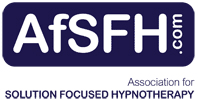Hypnotherapy for Obsessive Compulsive Disorder
What is Obsessive Compulsive Disorder (OCD)?
Obsessive Compulsive Disorder is a relatively common anxiety disorder and is thought to affect around 3 percent of the UK population. It involves involuntary obsessions and compulsions. Obsessions are recurrent and so are thoughts that persist despite the individuals desire to resist them.
Some people also develop compulsions, which involve repetitive action that is often performed as a ritual; these frequently involve checking or excessive cleanliness.
Obsessive Compulsive Disorder has three main parts:
- The thoughts that make you anxious (obsessions)
- The anxiety you feel
- The things you do to reduce your anxiety (compulsions)
Symptoms tend to come and go or can steadily become worse dependent on the levels of stress and anxiety experienced by the sufferer.
It is also common to experience Obsessive Compulsive Disorder when suffering from other symptoms such as depression or phobias.
Cheltenham Hypnotherapy fo OCD
Hypnotherapy can help enormously with reducing the anxiety that feeds and necessitates OCD.
Using Solution Focused Hypnotherapy is often the very best way to reduce triggers and associated anxiety to enable a sense of normality and control to return to the individuals life.
Obsessive Compulsive Disorder can be very debilitating and can have an enormous impact on the life of the sufferer.
The most common anxieties involve:
- Contamination: dirt, germs, bodily waste, chemicals
- Mistakes: locks, taps, appliances, paperwork
- Order: neatness, symmetry, numbers
The most common actions are:
- Checking (28%)
- Washing and cleaning (26%)
- Repetition of normal activities (11%)
- Ordering or arranging (6%)
- Saving or Collecting (3%)
- Mental counting (3%)
The rituals will typically have no logical purpose. An individual may operate a light switch 7 times before leaving it; rearrange the pillows on the bed 4 times; check each corner of the room twice; pick an object up and put it down several times; arrange things in a certain order, then rearrange them... in fact he or she might perform absolutely any action a set number of times - and it will always be the same number of times.
Nothing is being sought by these obsessive actions - for the most part, the 'owner' of the condition will simply feel, fear, or believe that something awful will happen if these rituals are not completed properly and no amount of logic will persuade him or her that the rituals are unnecessary.
Obsessive illness can sometimes be 'invisible' to the outside observer, consisting of obsessive thought patterns in which the same thought or series of thoughts is repeated in the mind over and again to the point of causing exhaustion. It is not unknown for these thoughts to be of an 'inappropriate nature' in some way when they can cause great distress to the individual concerned. These can include:
- Urges to spit at others
- Fears of suddenly jumping from high places
- Wish to severely offend others in some way
- Obsessions with bodily functions
- Bodily functions of others, especially defecation or urination
- Fears of throwing oneself into the path of trains or traffic
Jealousy also quite frequently has overtones of obsession as do some apparent phobias, particularly Emetophobia (fear of vomit or vomiting). Other recognised obsessive conditions are Tourette's syndrome and ADHD (Attention Deficit Hyperactive Disorder).
Obsessive Compulsive Disorder and the Brain
Obsessive Compulsive Disorder is a neurological problem with psychological aspects. Research suggests that OCD involves problems in communication between certain parts of the brain. These parts are responsible for evaluating perceptions and choosing appropriate responses that allow us to shift our thoughts from one response to another. In someone with Obsessive Compulsive Disorder this process often doesn't work and leads the sufferer to repeat the same behaviours and thought processes over and over again.
It has also been shown that there is often an imbalance of Serotonin and dopamine in the brain. These are very important neuro-chemicals produced by the brain, which are responsible for maintaining a healthy state of mind, and have a big affect on our moods and behaviours. This is where Solution Focused Hypnotherapy comes in.
Cheltenham Hypnotherapy for Obsessive Compulsive Disorder
In addition to changing your thought processes and reducing the anxiety levels that drive you, hypnotherapy helps stimulate the release of Serotonin helping your brain to function more effectively and giving you relief from your OCD symptoms.
Using a variety of Solution Focused Brief Therapy and CBT techniques we find ways for reducing the triggers that feed the compulsions and work at finding a comfortable way forward to a more happy and balanced life.
Take a positive step to change now by calling 07739 085 686 or 01242 279 562 to find out how hypnotherapy can help you overcome OCD and to book an initial consultation in Cheltenham.



